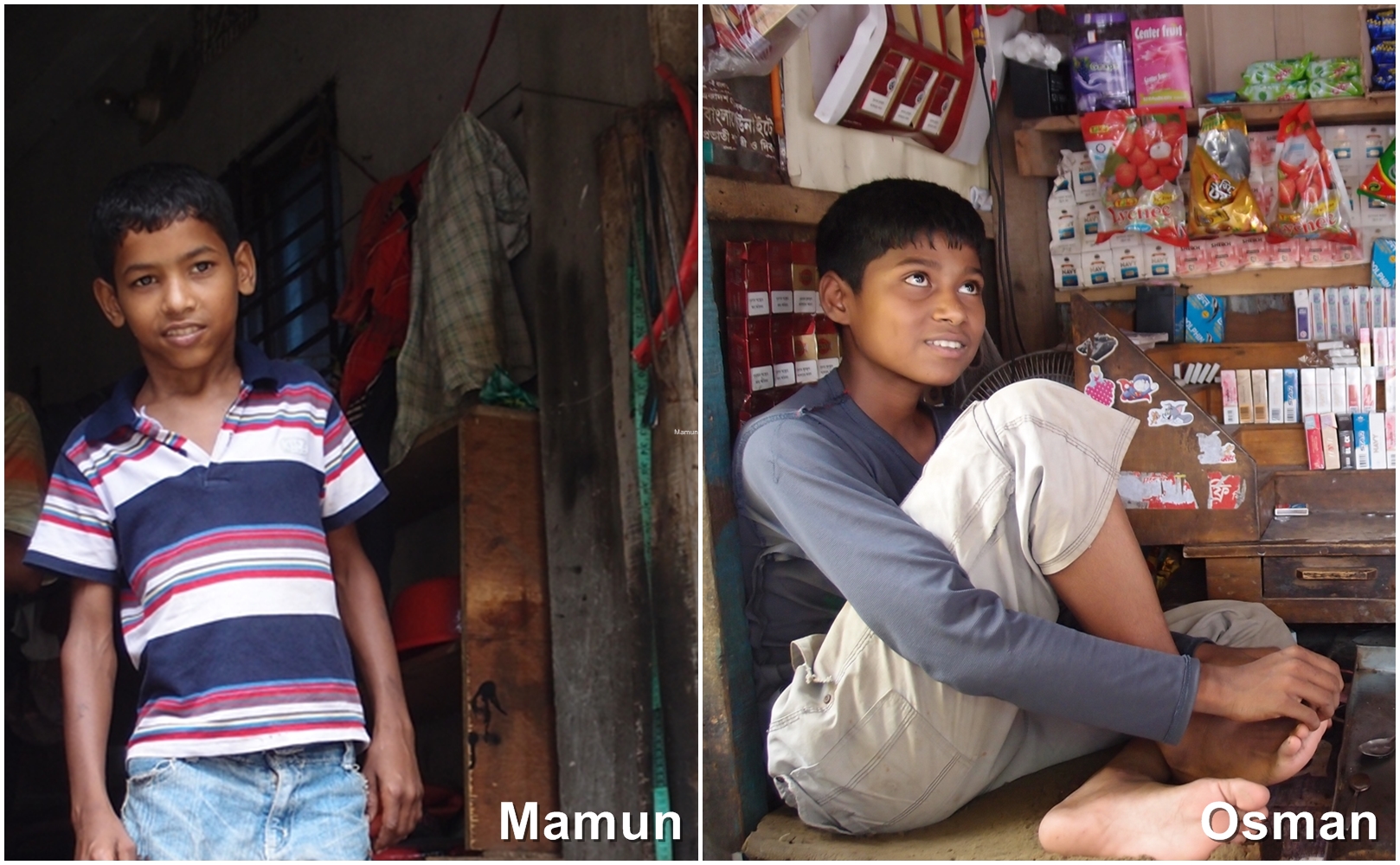While many parents in Hong Kong worry about how their children are getting on in the first month of school, many parents in Bangladesh worry about the well-being and safety of their children at work. In 2012, 17% of the children aged between 5-14 years in Bangladesh had to work as child labourers. According to US Department of Labor, children in Bangladesh are engaged in the worst forms of child labour, primarily in dangerous activities in agriculture and in domestic service. Children working in agriculture may use dangerous tools, carry heavy loads, and apply harmful pesticides. Girls mostly work as domestic servants in private households. They work long hours and are subject to discrimination and harassment, on top of emotional, physical, and sexual abuse. [US Embassy, UNICEF]
Many child labourers miss out on their right to education because they do not have the time to go to school or study. Studies show that working long hours adversely affect school attendance. As a result, working children get stuck in low paying, low-skilled jobs, thereby perpetuating the cycle of poverty.
The following two children both live and work in the Hazaribagh slum:
Mamun, aged 14 and suffers from polio, has lost the motivation to study after his father passed away. His uncle took him to a bike shop to help with repairing bicycles. He now works there from 9am to 10pm every day and repairs about 15-20 bikes a day.
Osman, aged 12, works in his brother’s stall from 7am till 10pm every day, serving tea and selling cigarettes. He comes from a family of 10, sharing two rooms together, with only 3 members working to support the whole family.
Our partner in Bangladesh, SATHI (Sustainable Association for Taking Human Development Initiatives) works in the Hazaribagh slum and other slums of Dhaka in areas of health, income generation, small business development, justice and literacy. Seeing the needs of these child labourers, SATHI has begun a project on Child Rights Promotion this year supported by CEDAR Fund to mobilize the community to form and implement Child Protection Policy & Child Care Fund in order to curb the practice of early marriages, child labour and child abuse.
Mamum and Osman’s stories are only two of many other stories where children forgo their rights to education to make a living. Are you willing to walk with the child labourers in Bangladesh?
Join us in prayer for them:
- For SATHI and their new colleagues as they implement the Child Rights Promotion project in the community
- For parents and other family members of the children to see the importance of protecting the younger generation from harm
- Pray that more churches and believers in Hong Kong will open their eyes to the world, to be concerned more for the needs of the poor and disadvantaged communities in poor nations, and walk with them with prayers and actions.
Join us in stepping up and moving the world for them:
- Come and join CEDAR’s Barefoot Walk on 8 November, to walk with the urban slum dwellers in Bangladesh, to bring hope for the children! Please visit cedarwalk.org and register online.
